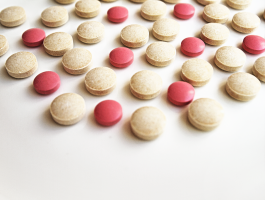
Responses to tamoxifen were significantly prolonged by reducing levels of the enzyme APOBEC3B in preclinical models of oestrogen receptor–positive breast cancer and significantly shortened by increasing levels of APOBEC3B, suggesting that APOBEC3B drives resistance to tamoxifen, according to data presented at the 2015 San Antonio Breast Cancer Symposium, held Dec. 8–12.
In complementary clinical analyses, among patients with recurrent oestrogen receptor–positive breast cancer treated with tamoxifen, those who had high levels of APOBEC3B in their primary tumours had shorter durations of progression-free survival than those whose primary tumours had low APOBEC3B levels (medians of 7.5 versus 13.3 months).
“Several recent studies have linked elevated levels of the enzyme APOBEC3B in oestrogen receptor–positive breast cancer with poor patient outcomes, but whether APOBEC3B actually drives the poor outcomes has not been determined,” said Reuben Harris, PhD, investigator of the Howard Hughes Medical Institute, professor in the Department of Biochemistry, Molecular Biology, and Biophysics at the University of Minnesota, Twin Cities, and member of the Masonic Cancer Center.
“Our preclinical studies using an established xenograft model of estrogens receptor–positive breast cancer show that APOBEC3B can drive tamoxifen resistance.
“We know that APOBEC3B is not required for human life because a large proportion of people in Southeast Asia do not have APOBEC3B as a result of a natural genetic variation,” Harris continued.
“This, combined with the fact that it is an enzyme, makes APOBEC3B an attractive target for a therapeutic that could stop the development of resistance mutations and substantially extend the length of response to tamoxifen.”
In pre-clinical studies, Harris and colleagues transplanted mice with a human oestrogen receptor– positive breast cancer cell line called MCF-7L and then treated the mice with tamoxifen.
Compared with mice receiving unmanipulated MCF-7L cells, mice receiving cells in which levels of APOBEC3B had been reduced by a technique called shRNA had significantly prolonged responses to tamoxifen and those receiving cells in which levels of APOBEC3B were increased by genetic manipulation developed tamoxifen resistance significantly more rapidly.
Harris noted that while the typical tamoxifen response of mice transplanted with unmanipulated MCF-7 cells was about 50 to 100 days, most of those transplanted with APOBEC3B-supressed MCF-7 cells responded until the experiment was ended after a year; those transplanted with APOBEC3B-overexpressing cells developed rapid tamoxifen resistance with virtually no therapeutic response.
In collaboration with John Martens, PhD, an associate professor at Erasmus MC in Rotterdam, Netherlands, and Paul Span, PhD, an associate professor at Radboud University Medical Center in Nijmegen, Netherlands, Harris and colleagues also analysed APOBEC3B levels in tumour samples from 285 patients with recurrent oestrogen receptor–positive breast cancer.
The tumour samples were obtained during surgery for primary breast cancer and all patients were treated with first-line tamoxifen therapy only after disease recurrence.
Those patients whose tumours had high levels of APOBEC3B had disease progression significantly sooner after starting tamoxifen therapy than those whose tumours had low levels of APOBEC3B: 7.5 months compared with 13.3 months.
Harris explained that APOBEC3B is an enzyme that causes genetic mutations and that this study suggests that by promoting genetic mutation it drives tamoxifen resistance.
He also noted that this study indicates that APOBEC3B, as a dominant intracellular source of genetic mutation, could potentially be controlled to prevent cancer progression.
Harris mentioned that we already know of external causes of cancer-driving genetic mutation that can be controlled—for example, ultraviolet radiation from the sun, which can be avoided by seeking shade or applying sunscreen, and cigarette smoke, which can be controlled by quitting—and APOBEC3B should be regarded as an analogous intracellular factor.
Source: SABCS
We are an independent charity and are not backed by a large company or society. We raise every penny ourselves to improve the standards of cancer care through education. You can help us continue our work to address inequalities in cancer care by making a donation.
Any donation, however small, contributes directly towards the costs of creating and sharing free oncology education.
Together we can get better outcomes for patients by tackling global inequalities in access to the results of cancer research.
Thank you for your support.